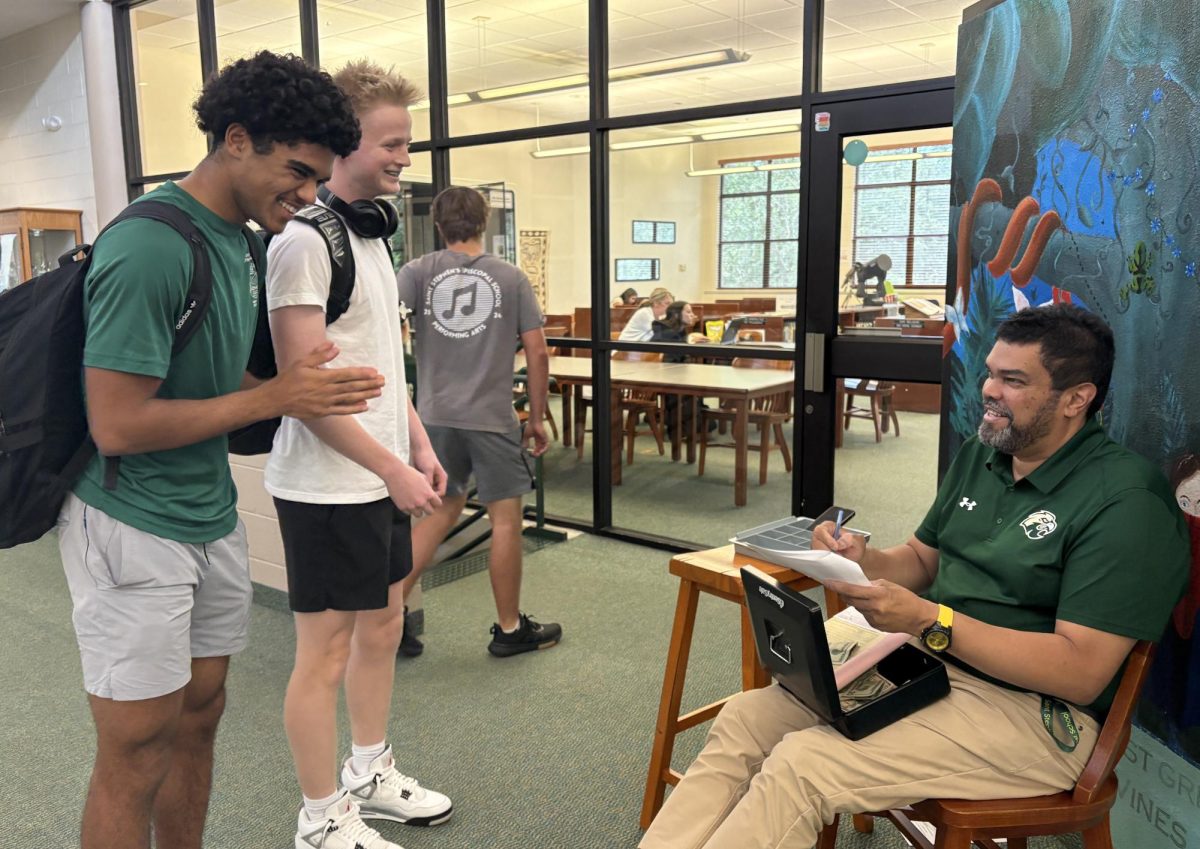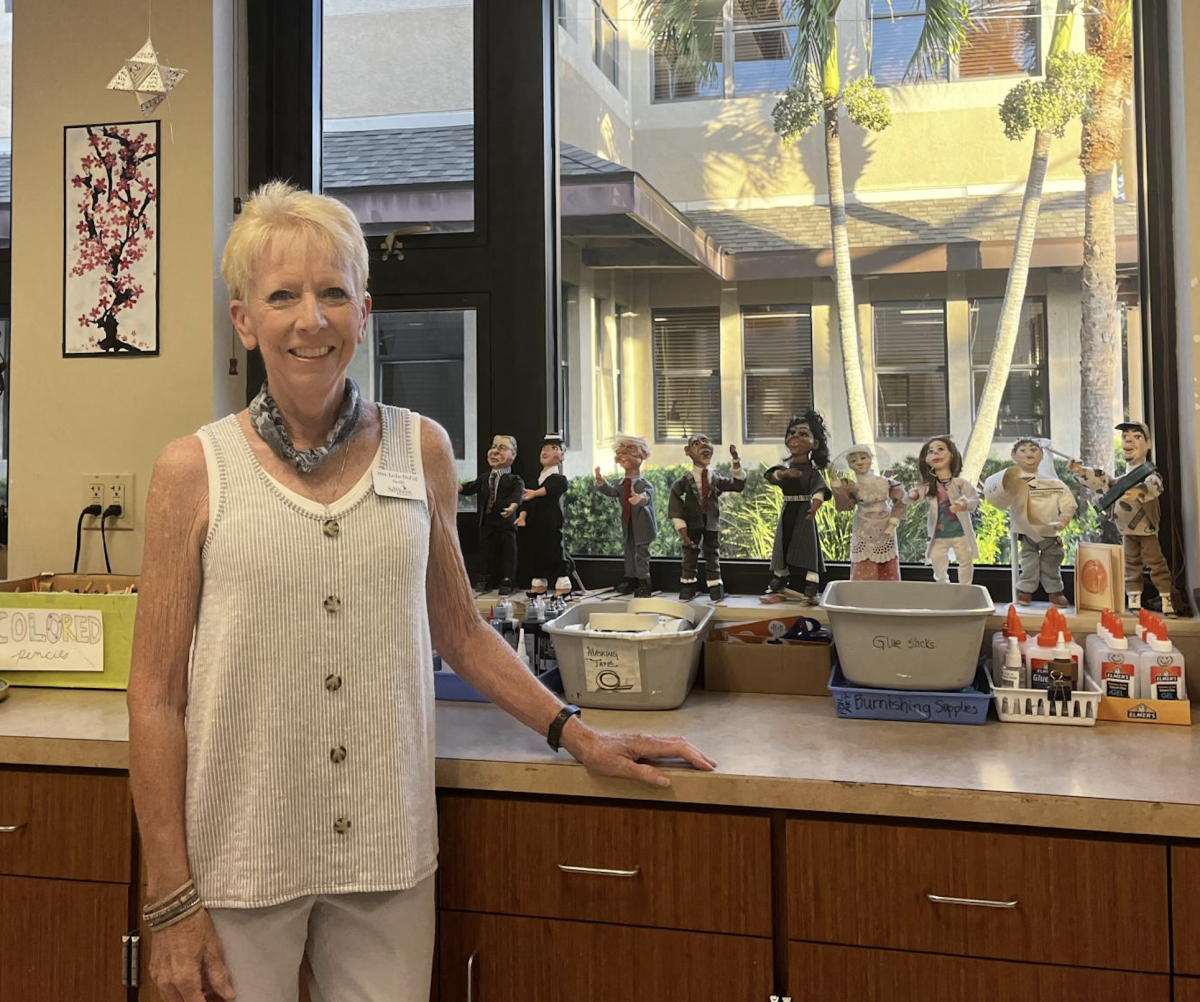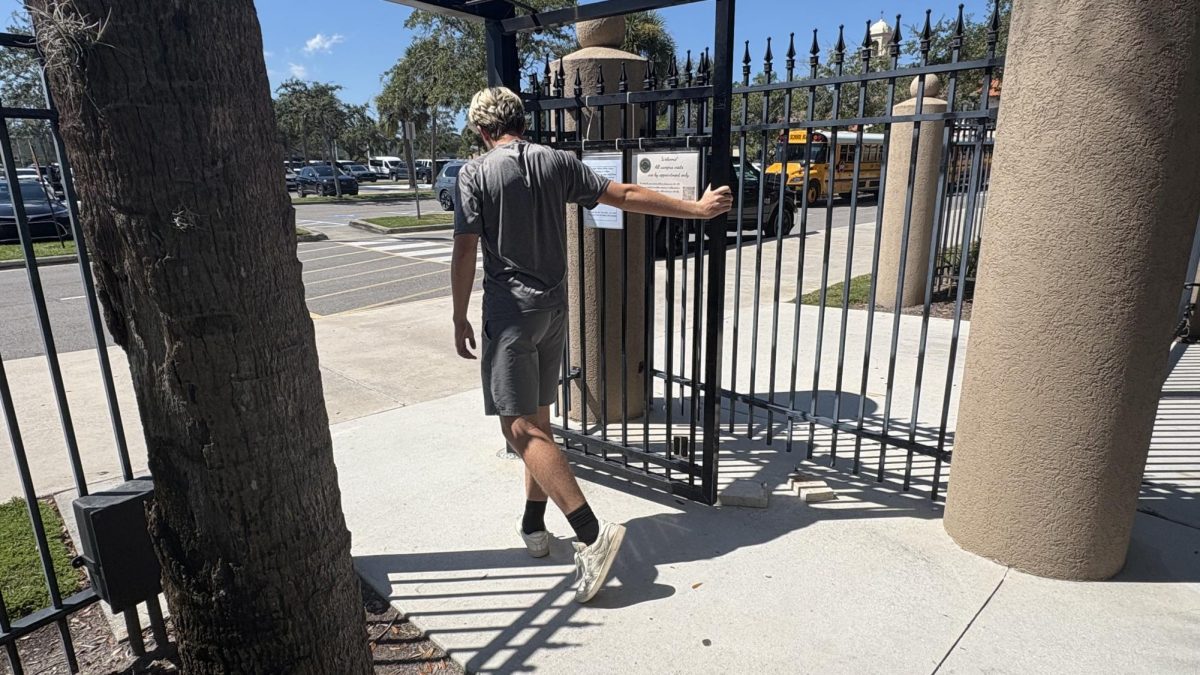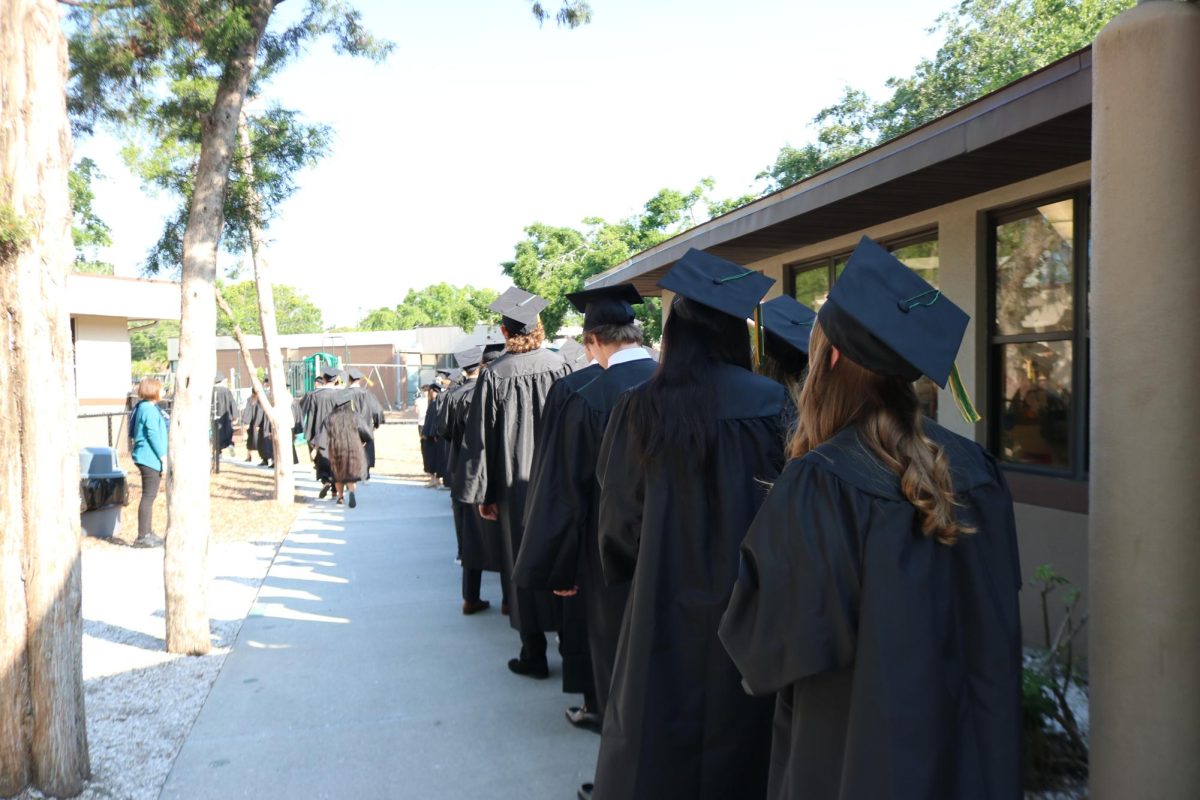Several new policies came into effect at the beginning of the ’25-’26 school year, one of which is a new departure time at 3:10 p.m.
This new policy marked a significant change for the Upper School, and although it didn’t cause much initial uproar among students, as the year progresses, some are now weighing in on it’s impact on their daily lives.
Extending the school day has its benefits, allowing for an extra ten minutes of lunch, while keeping classes the same length.
Assistant Upper School Director Mr. Moore said the extension also ensures that all four divisions have an aligned schedule, so teachers who work across multiple divisions are never expected to be in various places at the same time.
“Last year, there were times Mr. Schafer had an overlap of classes, where he was supposed to be in two places at once,” Moore said.
Moore added that the schedule shift helps the divisions have common break times, allowing for more all-school events, like Falcon Friends and pep rallies.
Senior Karli McMahan is a fan of the extra time at lunch because it gives her more time for club meetings, while leaving time to eat. She also appreciates the additional time it gives her to finish tests and other assignments.
“It’s really helpful because you’re not rushing through,” McMahan said.
However, the late dismissal policy raises one question. If we are leaving school later, and the schedule is changeable, then why can’t we start school later as well?
Moving the start times back, as we all know, would lead to higher levels of academic success as well as mental well-being, as Ally Folkens argued in 2023.
Optimal start times have been discussed for years, and it’s pretty commonly known that a “later start” would lead to positive outcomes. The American Academy of Pediatrics itself argues that schools should start no earlier than 8:30 a.m. so students can get an adequate amount of sleep:
“This research indicates that the average teenager in today’s society has difficulty falling asleep before 11:00 pm and is best suited to wake at 8:00 am or later.”
Alex Holmes, who lives in Parrish, agrees.
“Having an extra 30-40 minutes in the morning would help a lot,” Holmes said. “I was 20 minutes late today.”
Pushing back the start time could disrupt the carefully curated schedule– bus schedule would have to be pushed back, and potentially sports, after-school activities, and meetings. And moving the schedule around would also force Saint Stephen’s to no longer align with surrounding schools, possibly affecting sports games and academic competitions.
Moore agreed implementing a later start time would be beneficial, but there are many factors that make the move difficult.
“I would love to do that [push back start times]…but there’s a lot of moving parts that are kind of beyond our control,” Moore said.
Expecting students to wake up early in the morning, attend eight hours of school, participate in extracurricular activities, complete their homework, maintain a social life, and get a full eight hours of sleep every night is not realistic, though.
Something is always going to give, and most often, sleep is the first thing to go.
If Saint Stephen’s moved their schedule back by 30 minutes, with the same focus they used to extend the day, it could provide students with more time for themselves in the morning. Remember how successful our intermittent “Late-Start Days” were?
So will it ever happen– will a “late start” ever become a reality? That remains to be seen.
“I have no idea. You never know,” Mr. Moore commented. “I’ve been here for 28 years now… and so much has changed in the 28 that I won’t predict what will happen in the next 15.”















































